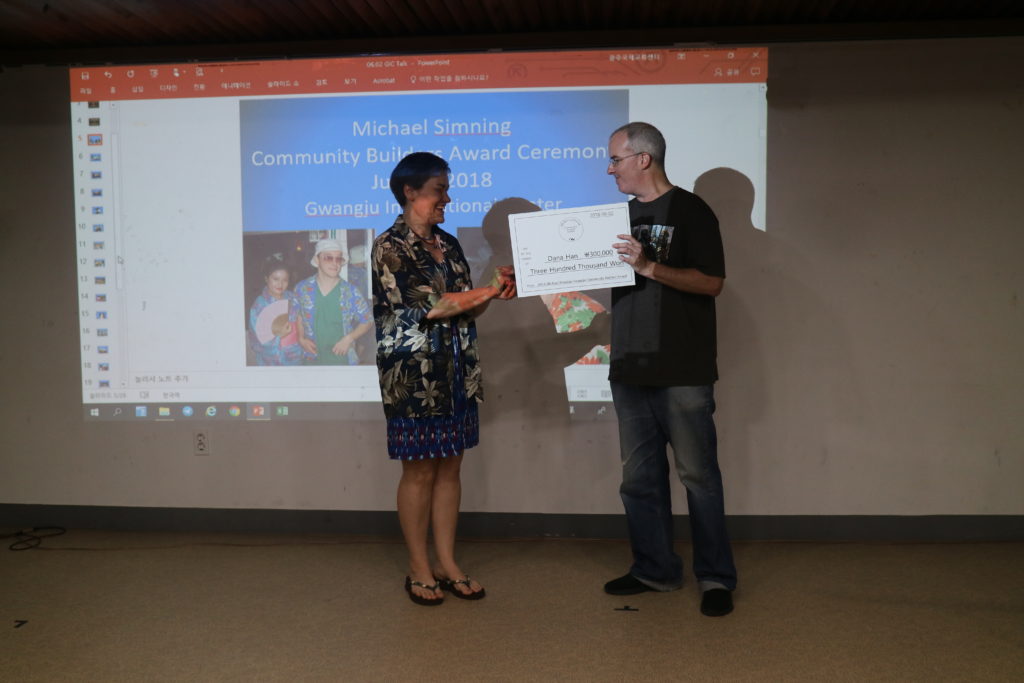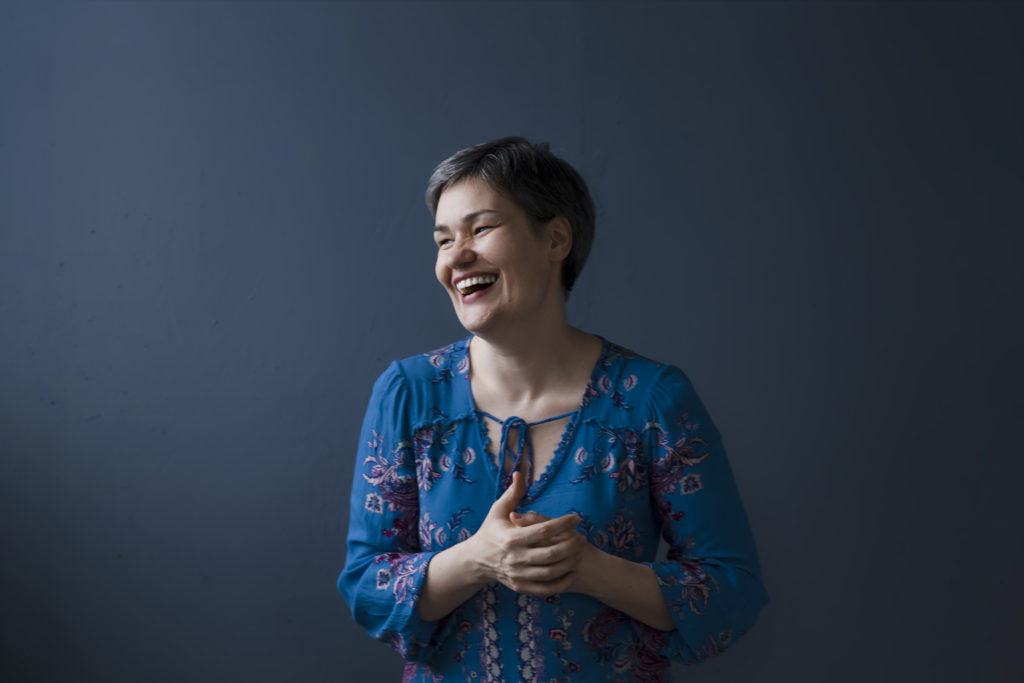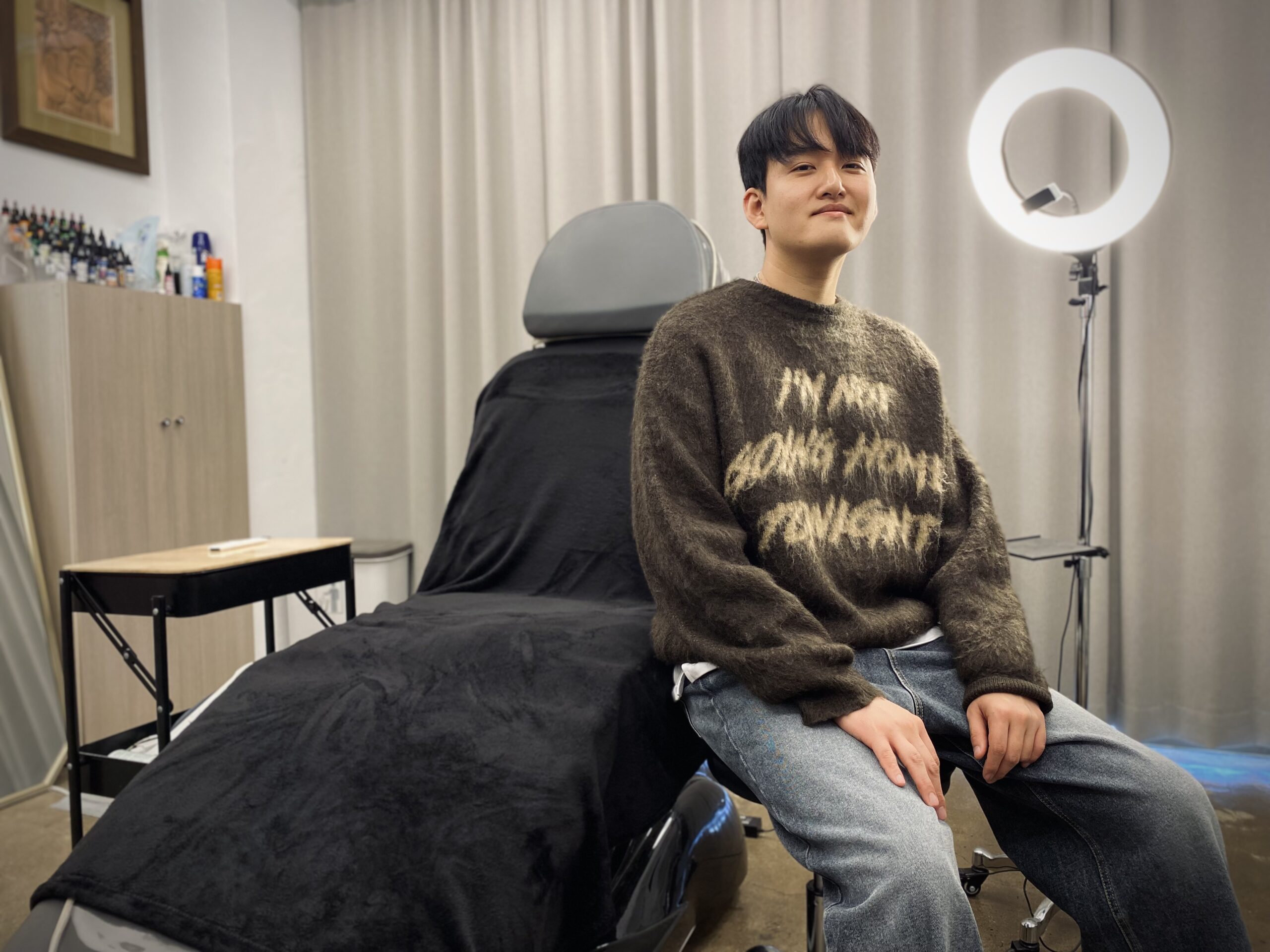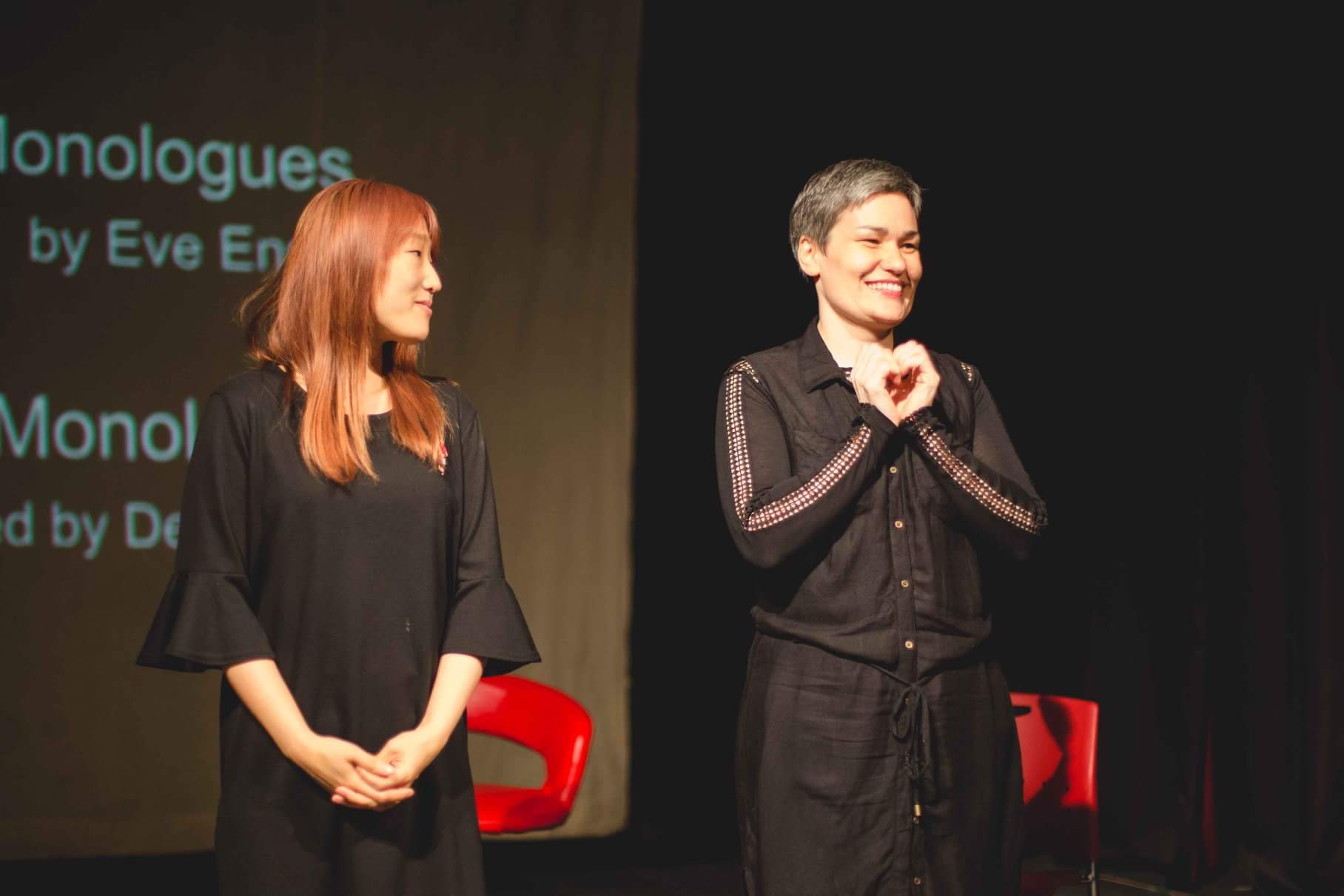Recognizing Contributions to the Gwangju Community: The 2018 Michael Simning Community Builder Award
Written by Jennifer Marlton
Photographs by Lorryn Smit and courtesy of Dana Han
The Michael Simning Awards were created by a group of Gwangju residents in order to recognize contributions made to the Gwangju international community, generally through their volunteer work and/or community projects. The two finalists for this year’s award were Dana Han and Lindsey Herron. Both are long-time residents in Gwangju and have both contributed significantly to the Gwangju community. Winners of the award in the past have included a volunteer at Sungbin Orphanage, a president of the Adopt-a-Child for Christmas initiative, and the creators of Global Families of Gwangju.
Michael Simning was a Canadian expat who was a strong community builder in Gwangju. He initially moved to Gwangju in 1997 and returned later to resume teaching. He was involved with and supported many community groups, translated for the police, and organized volunteers for Sungbin Orphanage. He was also the owner of several local foreigner haunts, including The First Alleyway and Speakeasy, and helped create a home-away-from-home for many expats in the community. The awards were organized after his death in 2014 as a way to remember him and the work he did in the community, and to recognize other people making a lasting impact on the Gwangju community.

Dana Han was nominated for her contributions to women in the community. Her nomination referenced her fundraising for a single mother shelter and her work for gender equality. Rather than defining herself as a feminist, she describes herself as a humanist, as she tries to identify with and find solutions for the issues both women and men face in different aspects of life. This year, in her fourth year involved with the project, she directed Gwangju’s seventh annual production of The Vagina Monologues (by Eve Ensler) for the V-Day Gwangju Project.
V-Day is an international movement that highlights the issue of violence against women and girls, and aims to prevent it. It was launched in 1999 and has raised over $100 million for women’s anti-violence groups, including shelters, rape-crisis centers, domestic violence shelters, and safe houses in countries all around the world. The Vagina Monologues is an episodic play that depicts issues many women have faced across different age groups, ethnicities, and sexualities. The play shows the pain and frustration expressed by many women about their treatment in different communities, an issue that has recently been brought into the forefront of the public arena with the #MeToo movement. Han said, “It’s become obvious that people really want to do something about it. … Women have been talking for ages about rape culture, victim blaming, shame and guilt associated with women’s sexuality, genital mutilation, and just generally about their experiences of inequality. The play itself is based on life experiences of a lot of women. It invites people to think about questions that are usually talked about behind closed doors.” The play is often used as a fundraiser to support campaigns and services for preventing violence against women.
However, Han felt that the play was presenting a one-sided message. She wanted to adapt it to reach more people and create a dialogue. She wanted inclusion, not a message of finger-pointing or blaming. Han had men working on the production team in past years, but this year she found a play that they could perform as well – a play that also highlighted the issues that men experience in the community, to hear their voices and show the pain they are also experiencing. “After the first year, it became clear to me that it’s not only about women. Men are part of the problem, but they are also part of the solution,” Han said. The Mending Monologues (by Derek Dujardin) was combined with The Vagina Monologues to create one blended play. It was able to show how men are also suffering from violence in the community, directly or indirectly, and to inspire men to actively prevent it. “I wanted to expand V-Day’s goal into raising awareness about violence against women and girls, as well as against men and boys. There are no winners in this gender-related mess, we all lose. I believe we need to educate and inspire our boys and girls to create relationships based not on gender but on our personalities, talents, passions, and capacities,” Han said.

Han is also very passionate about non-violent communication, restorative justice, and conflict resolution. She has been conducting workshops for high school students and parents, and recently at the GIC on this issue. “I think a lot of the painful conflicts can be prevented if we learn how to disagree, how to communicate our differences, how to see our common humanity. I believe this is a skill that has to be learned and practiced. … I don’t want to deal with the results of violence, I want to learn how to prevent it. I’m inviting people to consider a different approach to conflict resolution that might lead to connection instead of alienation. If you are willing to try and see how this approach works, come join us. We will be meeting every Sunday at 1 p.m. until the middle of July [at the GIC],” Han said. She also has plans to give presentations at high schools on how gender bias can influence relationships and at universities on issues of consent.
Lindsay Herron was nominated for her work with the Gwangju-Jeonnam Chapter of Korea TESOL (KOTESOL), which is a volunteer organization for English language teachers to develop their professional skills. She was nominated for transforming it into a powerhouse organization. Her talents have been recognized throughout the community – she regularly gives presentations and workshops, and she is a role model for teachers in the community. Originally from the United States, 2018 marks her eleventh year in Gwangju, and she is currently the president of the Gwangju Chapter of KOTESOL. She has been involved in a leadership capacity with both the Gwangju branch and at a national level since 2013. She tries to contribute to the community when she can by making donations and helping out, and her classes have been involved with the Gwangju Adopt-a-Child for Christmas program for several years. This was her first time to be nominated for an award for her work in the community, and she was very surprised by the announcement. In response, Herron said, “The Gwangju community is robust with many deserving volunteers – people who are really the lifeblood of the community. I’m delighted to be counted among them as I try to contribute in my own small ways. I’ve always admired Mike Simning.”
Herron attributes her involvement in KOTESOL for making her the teacher she is today. She is involved with the chapter partly to “pay it forward” and contribute to teachers in the community who want to develop professionally. She finds the work incredibly rewarding and is able to pursue projects that interest her. KOTESOL has become a great way to socialize and network, not only through the workshops and conferences but also through its annual events.

This year the awards were held on June 2. The ceremony is held at the beginning of June each year because Simning’s birthday was on June 4. The awards began with short stories and reminiscences that recognized Simning’s friendships and contributions to Gwangju society. The winner this year was Han, who received a plaque and 300,000 won to contribute to the charity of her choice. (Both nominees also received a Hawaiian shirt, a staple of the Simning wardrobe.)
When Han found out about the award, she had a mixture of feelings. She said, “I’ve been in a social activist [frame of] mind … as long as I can remember. I remember thinking, okay, there is a problem, what can be done about it? What is my role in this?” Being nominated for this award is a sign to Han that some people find things she does valuable to the community. Han concluded, “This is very gratifying and inspiring. On the other hand, I know that, similar to all of the nominees, I am just doing things that I believe in or am inspired by. I am basically doing it for myself.”
Side note: If any of the readers believe that issues of gender bias, toxic masculinity and femininity, consent, and violence prevention need to be discussed with the youth, then anyone interested in creating and conducting programs for schools and universities should contact Han through her Facebook account: https://www.facebook.com/dana.han.71
The Author
Jennifer is from Australia and is currently working as an English teacher in Gwangju. She loves writing, traveling, and experiencing different cultures. She has enjoyed exploring and experiencing the different aspects of Gwangju during her time here.




